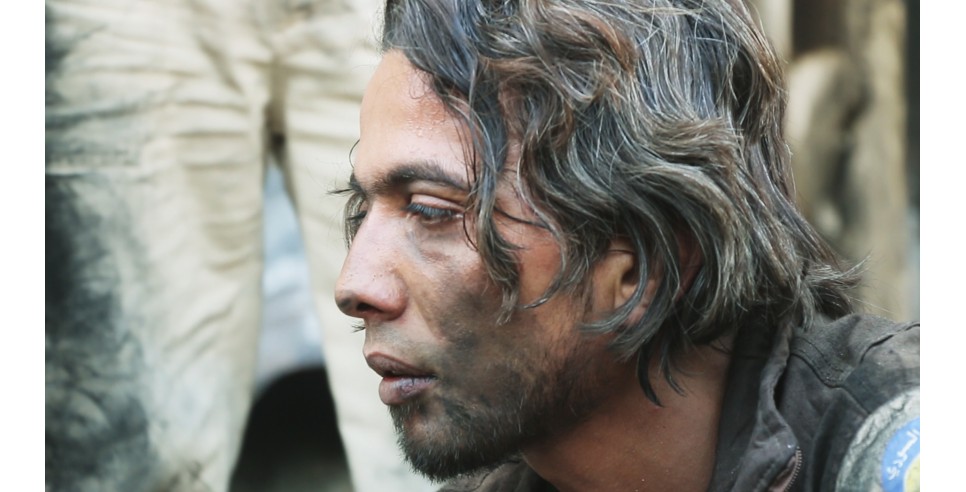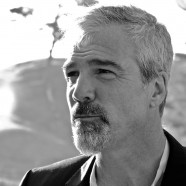
An average young man from an average Syrian town, White Helmets co-founder Mahmoud Al-Hattar never expected his path to lead to the stage of the 2018 Academy Awards. But that’s exactly where he was headed when the film, “Last Men in Aleppo”, about a group of volunteers who rescue civilians from the rubble of bombing targets, was nominated for Best Documentary. Unfortunately, the Syrian government (no fan of the White Helmets), stood in the way by denying his visa.
In the movie, Al-Hattar is right-hand man to Khaled Umar Harah, who was killed by government troops months after filming was completed. Today, Al-Hattar lives in Al Atareb outside of Aleppo, while his family is out of harm’s way in Izmir, Turkey.
“I was in an area where there was a conflict between Isis and Assad and allies of the Assad regime and seven of my colleges were killed by Isis,” he tells PR for People. “I witnessed ordinary people, all of them lose a son or family or people they love. And they will never ever give up and let this be an easy way for Russia to control the future in Syria. My people have lost the trust because we have been fed a misrepresentation about peace.”
With Syrian and Russian bombs falling on Ghouta, a death toll over 1,000 amid reports of chlorine gas used on civilians only fuels his skepticism. But Al-Hattar hasn’t given up hope. In fact, the death and destruction he witnesses on a daily basis has given his life purpose. “It fills me with happiness and I feel like what I did was real,” he smiles. “I’m here just to help. I’m not boasting, but it’s something beautiful just for me as a human.”
PR4P: How did the White Helmets come about?
MAHMOUD AL-HATTAR: We started as a group of civilians. We weren’t organized. We were just young people who saw a bomb and ran to help in the neighborhood. We started to organize ourselves around the first of March, 2013. We have to take care of this because this is about us and our society. And we couldn’t get out of this because there’s no other way to change our lives than this.
PR4P: And from that point on you decided to dedicate your life to the White Helmets?
MAHMOUD: The first time it made a big impact and effect on my mind and my emotion, it was in a neighborhood called Alhyadria. It was in the end of 2012 and children burned from barrel bombs that fell down over the buildings. And no one could help. No one knew what to do. This had a big impact and was a big turning point in my life, to see a child burning in front of you and nobody can do anything to stop that.
PR4P: How did things change after the Russians entered the conflict?
MAHMOUD: We felt like the bombs and the destruction over the cities started to get bigger with a Russian entrance into the city. We had limited experience in how to deal with heavy bombs.
PR4P: The Russians maintain you have no hard evidence of them bombing civilian targets or doing any of the things you say they do.
MAHMOUD: That was our job was collecting and documenting evidence behind everything, not just a bomb but an exploding car or fire, anything that happens. So we worked to show where they bombed and what they hit. The Syrian army doesn’t have the aircraft or weapons that have such a big impact. They have one helicopter. The Syrian army doesn’t have this strategy and the same powerful weapons. Suddenly there were different kinds of weapons like phosphorous, and different weapons we never witnessed before the Russians entered the conflict.
PR4P: How do you ignore the threat of sudden death in an environment like that?
MAHMOUD: The emotional and psychology had in impact on me. Everything happening around me seized me. When I was in Aleppo, it was in my mind that I would die any moment. But I was at peace when I was working at this. So it was a solution. And every rescue operation, I trust and I believe this is what’s going to help us to survive. We believe with every day and every operation we succeed or we fail, but it is the only way we can survive. We survive through our friendship.
PR4P: Is that what compels you forward?
MAHMOUD: We have had a lot of success and it brought about my decision to be in this group of people who give everything to help others. And also I can do this even if the war stops, I can do it in other places around the world.
PR4P: Describe for me the best and worst moments of being a White Helmet.
MAHMOUD: The worst is when I lost some friends and colleagues and you can’t do anything. You’re stuck there between the people you save and the friends who are killed. It’s hard.
PR4P: And the best?
MAHMOUD: The best moments that I remember is when I hear the sound of a child crying I know that somebody survived and I can do something to help that. And I enjoy the feeling of happiness when I did this and saved him from under destruction.
Jordan Riefe is an LA-based journalist who writes about arts & culture.









